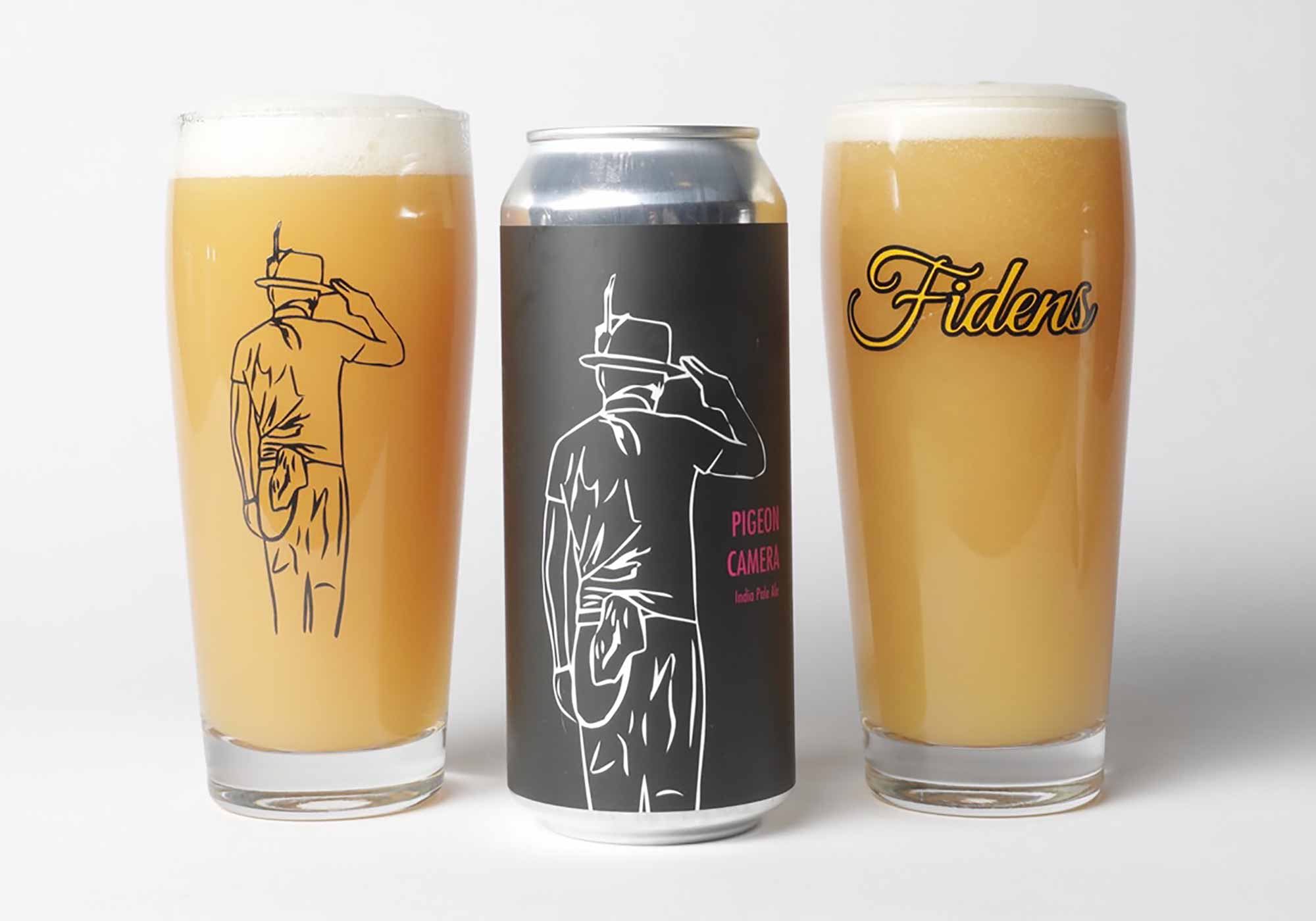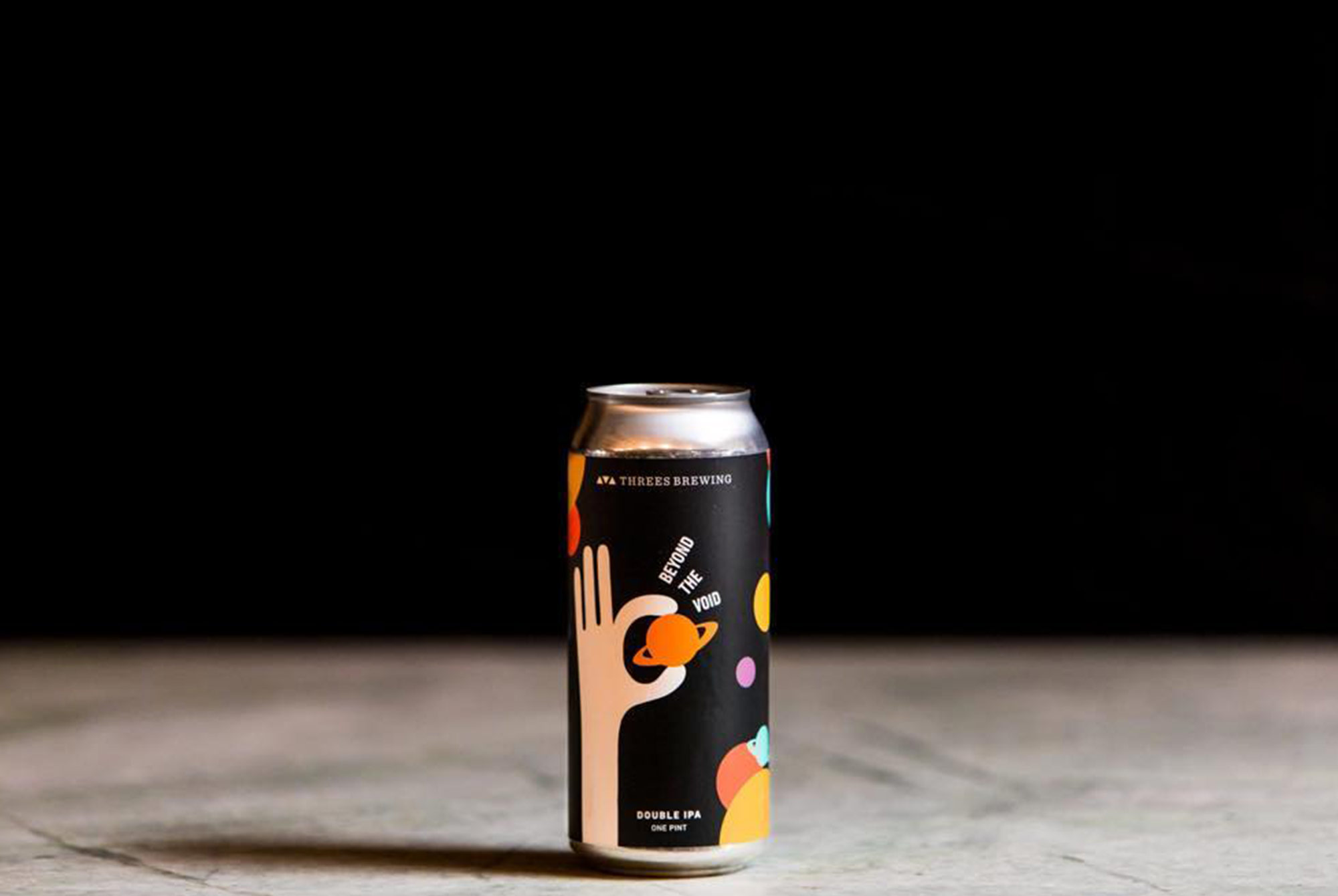Shop
The Hype is Real: Fidens Brewing Co. Is the Best Brewery You’ve Never Heard Of
We discovered one of the best hazy IPA breweries you haven't heard of yet.
Stop the (juice) presses: There’s an emerging talent in the world of hazy IPAs you might not know. Of course, you’ve heard of Monkish, Tree House, and Other Half, and maybe even rising stars like Root + Branch, Troon, Electric, and Green Cheek. But what about Fidens Brewing?
Opened in the small suburban town of Colonie, New York, near Albany, in the fall of 2019, Fidens is still one of the few breweries in the country to have fans camping out overnight for a chance at securing its freshly canned IPAs. Their small taproom in a 2,000-square-foot industrial space was open for just four months before the coronavirus pandemic hit, forcing the company to pivot entirely to drive-thru sales, which are currently held on Saturday mornings.
At the moment, Fidens sells its cans using advance tickets, and trims customer allotments as inventory diminishes. A typical release features two or three IPAs, all of which sell out in about an hour. The excitement, both locally and on the secondary market, surrounding its array of hoppy ales harkens back to the rise of New England style nearly a decade ago, when The Alchemist navigated huge lines for fresh batches of Heady Topper.
After tasting a few Fidens beers some months ago, we felt they were among the most expressive of the hazy-IPA style we’ve ever encountered: creamy in mouthfeel, slightly sweet with vibrant flavors of ripe citrus and tropical fruit, and a pleasing bitterness that begs for the next sip. That’s why we jumped at the chance to learn more about this rising beer maker, which, until now, had yet to do a lengthy interview.
Over the course of our conversation, we spoke with Parker about starting the company, their great success, his favorite non-Fidens IPAs, and how he approaches creating hop-forward recipes. Our conversation has been lightly edited and condensed for clarity.
A Conversation with Steve Parker of Fidens Brewing
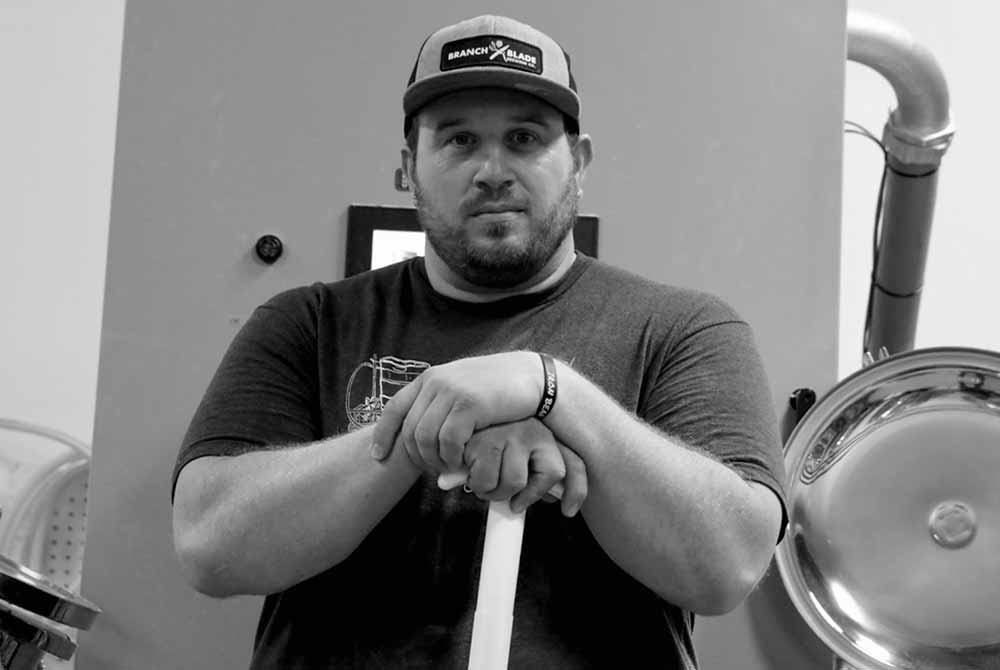
Photography courtesy of Fidens Brewing Co.
Niko Krommydas: Fidens has quickly joined the conversation about the country’s best producers of hazy IPAs. And it’s not just anecdotal evidence; the numbers back this up. If you filter Untappd’s top-rated breweries by microbrewery, Fidens currently checks in at #5 in the entire world. So how on earth does a small brewery from upstate New York that’s barely been open for 18 months achieve that level of notoriety and success?
Steve Parker: Foremost, I’m a business-owner focused on making a product that I want to be proud to sell. It was a struggle from the start going from a brewery-in-planning to a functioning, licensed brewery in finding the time and resources. Once I could start brewing in our commercial space, it was a lot of nights and weekends while being a father, husband, and, at the time, a physical education teacher. I’m very grateful for my family’s sacrifice in trying to make this happen. I know my partner Timmy [Pierce] could probably say the same.
But, yeah, I’m focused on learning and improving our processes. I believe that our success has come from the dedication and hard work of our team. We love the beer community and, of course, the beer we create. I truly believe that our customers can feel that when they visit us and drink our beer, even during these unprecedented times as a drive-thru-only model. I hope that’s a reflection of some of our early success. Hopefully that’s what’s coming through when people drink and discuss our beer.
NK: Stylistically, you’ve gone all-in on the hazy IPA. Was this your planned focus before launching the brewery? So many beer makers feel they are “forced” to brew the style because it’s what sells now, but behind closed doors they frequently deride it. But it seems like you genuinely love the style.
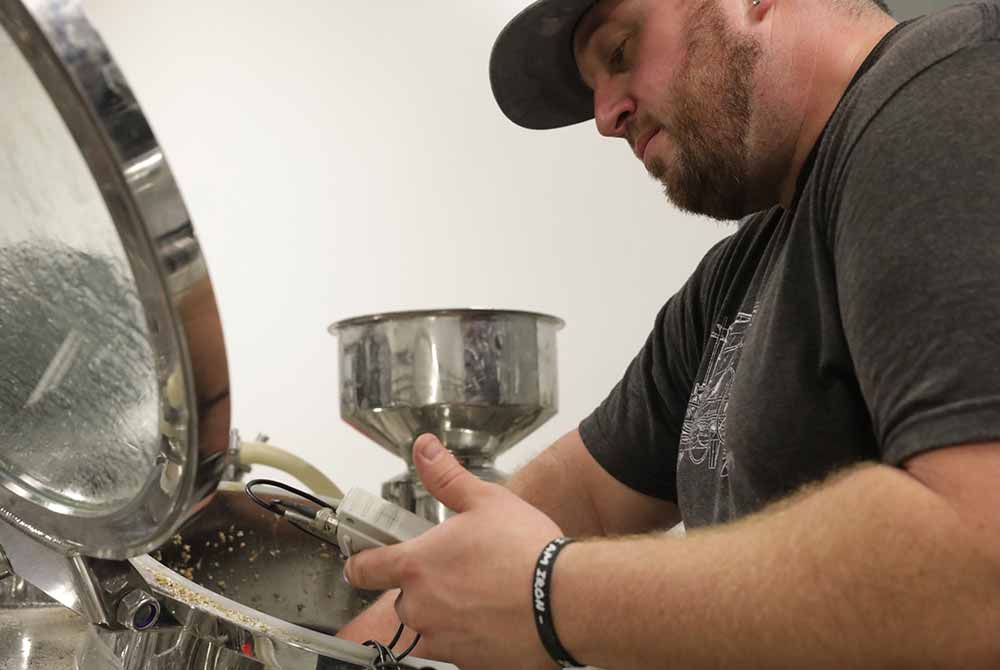
Photography courtesy of Fidens Brewing Co.
SP: Yes, we love the style, and I feel like it’s here to stay. There are so many people who like it. IPAs are our brew of choice and we don’t apologize for it. It’s the one thing we all have in common and that has brought us together to this point.
NK: What are the IPA producers — and the IPAs themselves — that influenced you as a brewer?
SP: The same ones that influenced most brewers that love and produce this style. I’m a big fan of John Kimmich, Sean Hill, Nate Lanier, Noah Bissell … My favorite IPA of all-time is Swish. I love that beer. My wife and I would take a trip to Maine every winter to get Swish. It has that great citrus, tropical-fruit character, but also a dankness that I love.
But the beer that was an eye-opening experience was Hill Farmstead’s Society & Solitude 4. I couldn’t believe what I was tasting. I had never had a beer that was so flavorful, and yet so soft. It has a special place in my memory and made me want to start brewing.
NK: Let’s talk about your facility. Like many brewers, you were forced to shut down your tasting room because of the coronavirus pandemic. I understand you have no plans to reopen it once the pandemic is over. Why?
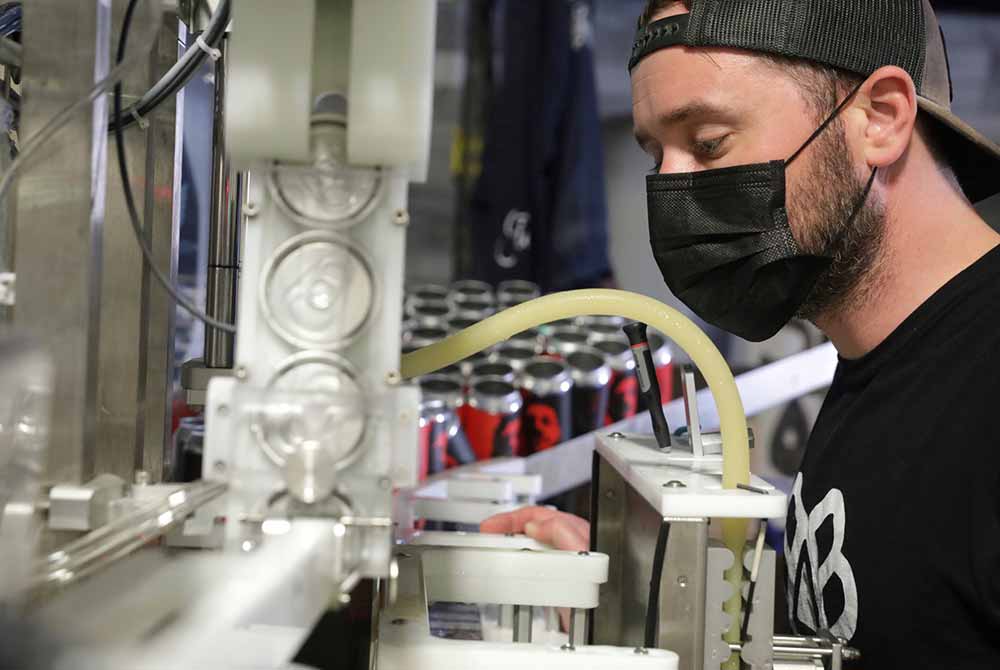
Photography courtesy of Fidens Brewing Co.
SP: Our location was picked strategically for our business model and ultimately because it was something we could afford, resulting in every part of the process requiring a little more effort. I believe the space was an automobile-detailing facility with a couple offices and a showroom when we found it. We tore everything out and did as much of the work we could to it on our own. An electrical upgrade almost stopped us in our tracks and at the same time presented itself far enough into the buildout to ensure we landed in this industrial park. We wanted to be centrally located in the Capital Region and Colonie finds itself in that spot bordering Albany. We‘re located right off Interstate 90 which travels from Buffalo to Boston, and Interstate 87 which travels from Montreal to New York City. The great demand has forced us to utilize that space to make more beer and to get it into cans. We miss our tasting room and look forward to having that experience again sometime in the future.
NK: What is the team background? Was the genesis of Fidens a classic “homebrewer decides to go pro” tale, or were you all previously in the industry?
SP: Fidens is definitely one of those classic tales. My background is in education. I was a phys ed teacher for thirteen years, with a majority of those years in downtown Albany. I started homebrewing about five years ago. I homebrewed for about two years before we had a discussion about making a run at opening a brewery. The early days were spent brewing on the rig that’s now our logo and conditioning the beer in my basement and living room. There were three of us that joined together to make Fidens possible: myself and my partners, Mike Carter and Tim Pierce. Mike was a financial advisor in Charlotte, and moved back to New York when we decided to open Fidens. Tim works as a CPA here in Albany.
NK: What about the name, Fidens? Where did it come from?
SP: We didn’t have a name the first month or so after getting serious about starting the business. One weekend Mike and I were working on the plan while tasting a recent homebrew when my wife came into the kitchen proclaiming she had found the brewery name. “It’s Fidens,” she said. Our reaction was similar to the reaction of patrons. “What’s Fidens?” She knew what we wanted our name to represent and she found it. Fidens is a Latin term meaning courageousness, or without fear. Confidence. She was right and we called Timmy and his wife to present the discovery.
NK: We know you handle the brewing duties. What about your partners? What are their roles?
SP: Timmy currently runs our “back office” and is immensely valuable with his accounting background. He’s also McGuyver when it comes to quick, efficient fixes in the brewery. Mike runs the canning line and tells us he does other essential things for the business. Mike and I are now running the business full-time with Allen Willbrant, whom we recently added as a partner. He found us shortly before we opened the doors offering to shoot our opening with his camera. I knew of him from the local beer scene and was pumped when he offered. Pretty much from that day he started volunteering to help me in the brewery. He’s my right-hand man in the production of the beer. He also runs our social media and designs our label art.
NK: Some critics say there is a certain sameness to the style of hazy IPAs that make it difficult to distinguish between good and great. Simply put: What do you feel makes your hazy IPAs stand out from the rest?
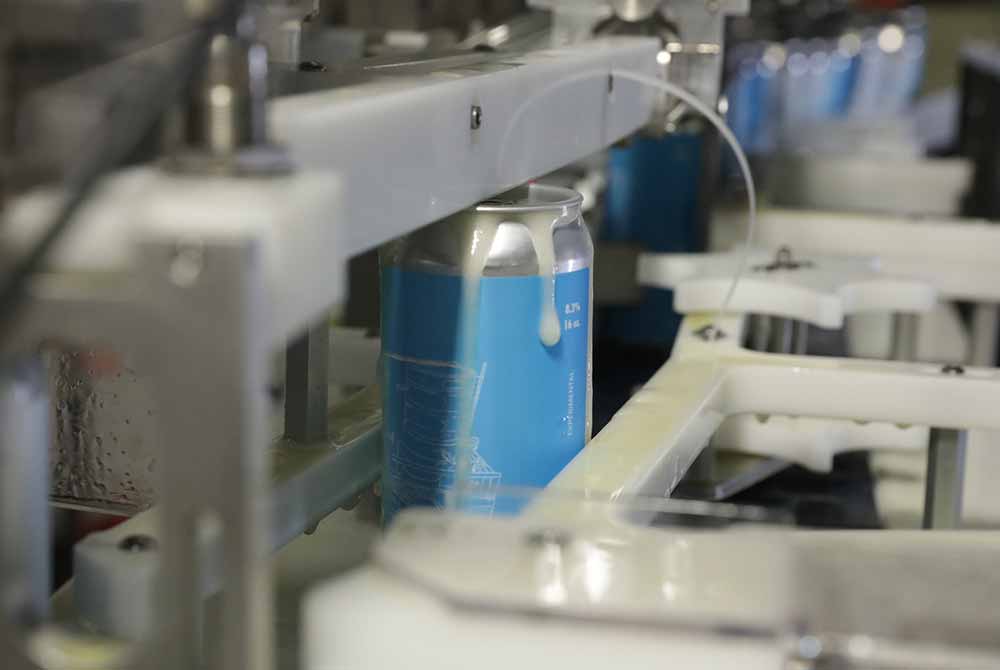
Photography courtesy of Fidens Brewing Co.
SP: I think what makes hazy IPAs stand out to people are water and process. These are the only two things, in my opinion, that differentiate from brewery to brewery.
NK: What’s been your favorite Fidens IPA to date, and why?
SP: Jasper is my favorite. It’s a recipe that I’ve been brewing since I started homebrewing. It’s gone through many tweaks. It’s special for me.
NK: What’s your favorite hop variety to work with?
SP: Citra and Mosaic are two of my favorite hops, but Strata has worked its way up there for me as well. Strata is one of those hops that pushes other hops and gets the most out of them. I’m on a huge Strata kick right now.
NK: Other Half, one of the premier producers of hazy IPAs, has championed you since day one, pouring your beer at several in-house events and exposing you to a larger audience. I once asked Sam [Richardson, co-founder] about his approach to creating a hop-focused recipe and he said this: “I look at using hops like playing the lottery. There’s a pretty large number of combinations of numbers in lotto, and the amount of combinations of hops is the same. You can also use just one hop, which we do a lot, or two hops, which we’ve been doing more of recently.” I then asked him if he thought he’d exhaust all hop combinations at some point, and if he was worried about his IPAs being indistinguishable from one another, and he told me: “Even for us and how many we make, I don’t think we’re anywhere near exhausting our creativity on that front. Plus, new hop varieties are always coming out. I don’t see it happening.” Do you agree?
SP: I would agree with that. There are so many hops out there and new ones coming out every year that it would take a while to exhaust ideas for a recipe. You can use the same hops and try a different grain bill, or yeast, or brewing process and get a different beer. Our Socratic Questioning series is dedicated to this. For example, Socratic Questioning 12 was Eugene’s Axe recipe and we tried a different yeast. It was awesome to see how much it changed the beer.
NK: While you didn’t seem to have any trouble generating hype with your Crowlers prior to instituting weekly can releases, your popularity has exploded now that fans can take your beer home in the category’s preferred vessel, the 16-ounce can, and are lining up the night before releases for a chance to get some. As your popularity grows, do you feel pressure to try to help ensure your fanbase can access your cans?
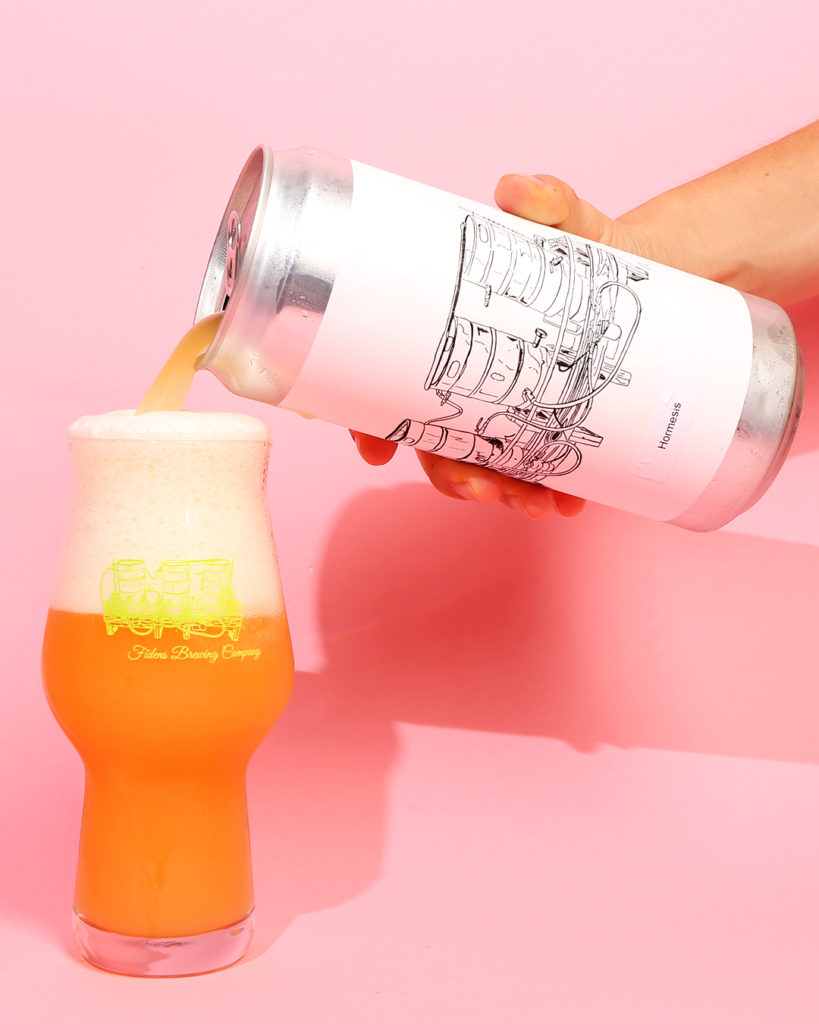
Photography courtesy of John Paradiso
SP: Of course we would love for everyone to get our beers. We always put the beer first. We have stayed very true to our business plan of natural growth, and are always focusing on the quality of the beer. As the only one who brews I have to find that balance of work and family life. I’m married with three young children and it’s extremely important for me to be involved with my family as much as I can. We will get there, but it‘s going to take time as we look to produce more and more in an attempt to meet our demand. As a small business, money, space, and time are our biggest challenges. We want to avoid growing too fast to ensure the beer remains consistent and enjoyed by our patrons.
NK: Looking at the pictures of people lining up in their cars the night before your Saturday releases, the Fidens narrative is eerily similar to the early days of The Alchemist and Tree House. Was small-scale production and limited quantities an intentional decision?
SP: Small scale, yes. Limited quantities, no. The three of us started this business with no outside resources. We self-funded Fidens. We had to buy equipment that fit our price point. We said that we didn’t want to have huge debt hanging over our heads and wanted to let the business grow itself. For almost the first year, I was working my day job and coming in on nights and weekends to brew. Mike and Tim were doing the same. Mike and I just went full-time at Fidens in September and Tim is still pulling double duty working his day job. It was the “If we can build it, they will come” mentality and that doesn’t change.
NK: The core facets of the “line life,“ as it’s known, is a pretty glaring contrast to the new ways in which we’ve had to live during the Covid-19 pandemic. While every brewery has had to pivot during this time of great change and uncertainty, not all have the demand that you do. How have you managed that aspect of business for both staff and customers, and will you continue it as “normal” returns?
SP: In our original business plan, we always wanted to operate with a to-go model, which is what we have now. Although it wasn’t easy, when this pandemic hit and we had to close our taproom, we were ready for this transition and challenge. We instituted a drive-thru system within the parameters of New York State. People pull up, give us their order, and we place the beer in their cars. Unfortunately, at the spot we are at now, we will not be able to open our taproom again. It‘s now full of production and packaging equipment. We work hard to keep ourselves connected with our customer base without having the advantage of a tasting room to interact with them and their beer experience. We get there early each week and try to join the line by talking about our favorite beers, blasting music, interacting with waiting people (and pets), providing some food and coffee from time to time, and some entertainment through our personalities. Perhaps influenced by our teams mutual connection to old-school professional wrestling and love for music.
Our releases are limited to one morning a week at this point out of necessity, not design. The goal is to open more days and to have a tasting room again at some point. That day will hopefully come, but again we are focused on organic growth.
NK: What do you think that growth looks like? Are you hoping for every fan to one day be able to walk away with several cases of your beers? There does seem to be something to be said for purposely staying small and continuing to fan the FOMO flames.
SP: We would love for people to be able to walk away with cases of our beer, but when the time is right. Right now, our focus is figuring out how to make more beer in the spot we are at, and we are exhausting every option at this point. The beer quality will always come first.
NK: Like many breweries focusing on hazy IPA, you conduct 100% of your sales on-premise. Will you continue this, or are you interested in expanding beyond your taproom walls?
SP: No, we don’t have any interest in expanding outside our taproom walls. We like to have full control of our product. It’s our goal to make sure the beer is stored properly before it’s purchased by the consumer.
NK: How much credit would you give Instagram as a platform for spreading the word about your beers? While many brewers are reluctant to play the hype game, there also is a begrudging acknowledgement that word likely wouldn’t spread as fast as it does now without a visual medium like IG.
SP: I feel social media, especially now with Covid, is extremely important in spreading the word about beer in general. We are blessed to have extremely talented people do our social media. Allen, who was our first employee and now part owner, and Katherine Wright do an amazing job for us. We want to make beer fun and Allen and Katherine do just that. We do not have a taproom where people can interact with us and know our personality. The only way to do that right now is through social media.
NK: Last question: If you had to guess where Fidens will be in five years, what would you say?
SP: I really want to be able to answer this question! Everything we are doing today is focused on the day-to-day and what has been getting people to come back to get our beer. That’s ultimately what’s going to give us the best chance of being here in five years. But we hope by that point we have a larger facility and higher production, a desired on-premise destination for our community, and more styles of beer. I don’t think we will ever be the brewery that produces every style of beer, but I’m definitely interested as a brewer in different styles.
Liked this article? Sign up for our newsletter to get the best craft beer writing on the web delivered straight to your inbox.

